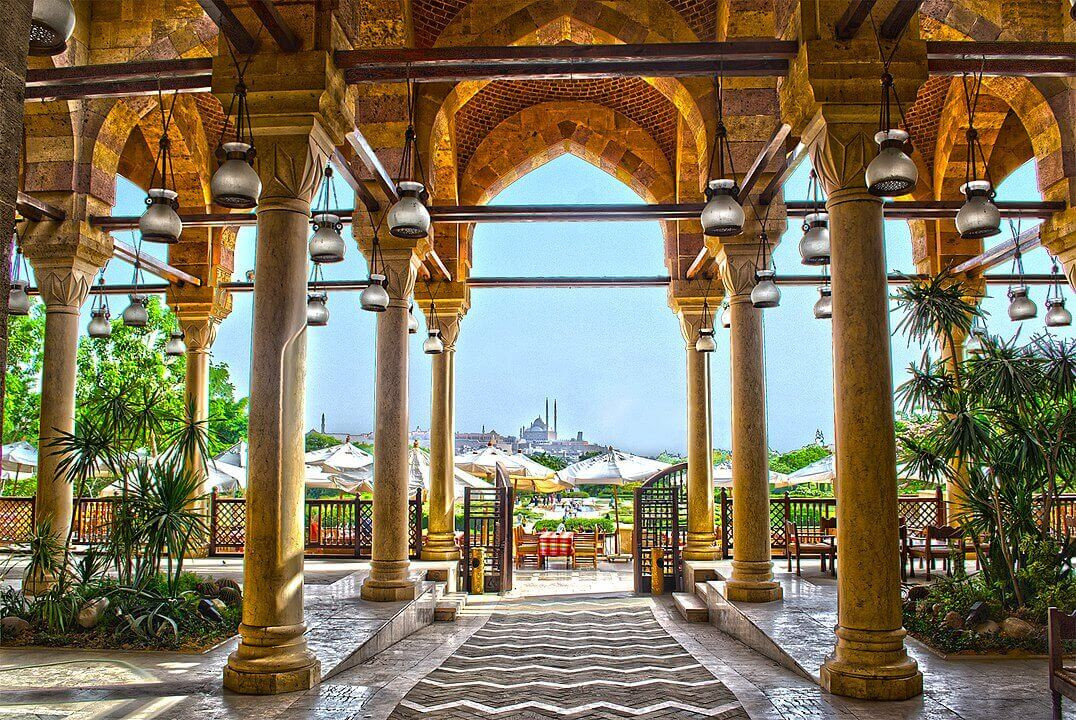| Rosette Rafaat | 2024-03-25 06:21:23 |
Egypt, located amidst the bustling streets and ancient wonders of Cairo, lies a serene oasis that offers a tranquil retreat from the city's chaotic charm. Al Azhar Park Cairo Egypt stands as a testament to the harmonious blend of history, culture, and natural beauty. In this article, we begin on a journey to uncover the enchantment of Al Azhar Park and explore why it remains a hidden gem in the heart of Cairo.
Unveiling Al Azhar Park Cairo Egypt
Established in 2005, Al Azhar Park is not just a green space; it's a symbol of urban revitalization and community development. Al Azhar Park location is on the historic hill of Al Darb al-Ahmar, the park spans 30 hectares, making it one of the largest green spaces in Cairo. Its creation was a visionary project by the Aga Khan Trust for Culture, aiming to restore the neglected areas of Cairo while providing a recreational space for its residents.
Al Azhar Park Tickets: A Haven of Natural Beauty
Upon entering Al Azhar Park, visitors are greeted by lush gardens, tranquil ponds, and meticulously landscaped pathways. The park's design draws inspiration from traditional Islamic gardens, featuring geometric patterns, water channels, and shaded pavilions. Towering palm trees and vibrant flower beds create a picturesque backdrop against the city skyline, offering a sanctuary for both locals and tourists alike.
Cultural Significance of Al Azhar Park Cairo Egypt
Beyond its natural allure, Al Azhar Park holds significant historical and cultural importance. The park overlooks the iconic landmarks of Cairo, including the Citadel and the Sultan Hassan Mosque, providing visitors with breathtaking panoramic views of the city's skyline. Moreover, Al Azhar Park is adjacent to the renowned Al Azhar University, one of the oldest Islamic educational institutions in the world, adding to its cultural richness and heritage.
Architectural Marvels: Al Azhar Park History
At the heart of Al Azhar Park lies the stunning Ayyubid Wall, a 12th-century fortification that once protected Cairo from invaders. Restored to its former glory, the Ayyubid Wall now serves as a focal point within the park, offering a glimpse into Cairo's storied past.
Visitors can explore the wall's ancient ramparts, towers, and gates while learning about its historical significance through informative exhibits and guided tours.
Al Azhar Park Restaurant
No visit to Al Azhar Park is complete without visiting the restaurant in Al Azhar Park. From traditional Egyptian dishes to international cuisines, the park's dining establishments cater to every palate. Visitors can savor a leisurely meal while enjoying panoramic views of the city or opt for a quick snack amidst the tranquil surroundings of the park.
Community Engagement
Beyond its role as a recreational space, Al Azhar Park is deeply rooted in community engagement and social development. The park hosts a variety of cultural events, concerts, and festivals throughout the year, bringing together people from all walks of life.
Additionally, the Aga Khan Trust for Culture has implemented various socio-economic initiatives aimed at empowering local residents through education, training, and job opportunities.
Environmental Sustainability
Al Azhar Park is not only a testament to cultural preservation but also a pioneer in environmental sustainability. The park boasts eco-friendly features such as water recycling systems, solar-powered lighting, and native plant species that require minimal irrigation.
These efforts not only contribute to the park's beauty but also serve as a model for sustainable urban development in Cairo and beyond.
Al Azhar Park Cairo Egypt: Preserving the Legacy
As Cairo continues to evolve and expand, the preservation of green spaces like Al Azhar Park becomes increasingly vital. The park stands as a symbol of hope and renewal, offering a refuge from the hustle and bustle of urban life.
Through ongoing conservation efforts and community engagement, Al Azhar Park will continue to thrive as a cherished landmark for generations to come.
Conclusion
In a city steeped in history and tradition, Al Azhar Park shines as a beacon of beauty, tranquility, and cultural significance. From its lush gardens and architectural marvels to its community-driven initiatives and environmental sustainability, the park embodies the spirit of Cairo's past, present, and future.
Whether strolling through its manicured landscapes or admiring its panoramic vistas, visitors to Al Azhar Park are sure to be captivated by its timeless charm and allure.
FAQs
Why is Al-Azhar Park important?
Al Azhar Park in Cairo, Egypt, holds immense significance due to its historical, cultural, and community-driven importance. It symbolizes urban revitalization, preserves heritage with the restored Ayyubid Wall, fosters community engagement, and sets an example in environmental sustainability. This green oasis stands as a beacon of hope and renewal in the heart of Cairo.
Why Do I visit Al-Azhar Park?
Visiting Al Azhar Park in historic Cairo offers a multifaceted experience. It provides a glimpse into Cairo's rich past through the restored Ayyubid Wall and proximity to Al Azhar University. The park also serves as a serene oasis amid the city's hustle, promoting cultural appreciation, community engagement, and environmental sustainability.
How is it possible to visit Al Azhar park?
Visiting Al Azhar Park is easily accessible to tourists and locals alike. Located in the heart of historic Cairo, the park is reachable by various modes of transportation, including taxis, buses, and metro. Upon arrival, visitors can enter the park through its designated entrances, where they may be required to pay a nominal entrance fee. Once inside, guests can explore the park's lush gardens, historical landmarks, and recreational facilities at their leisure.
